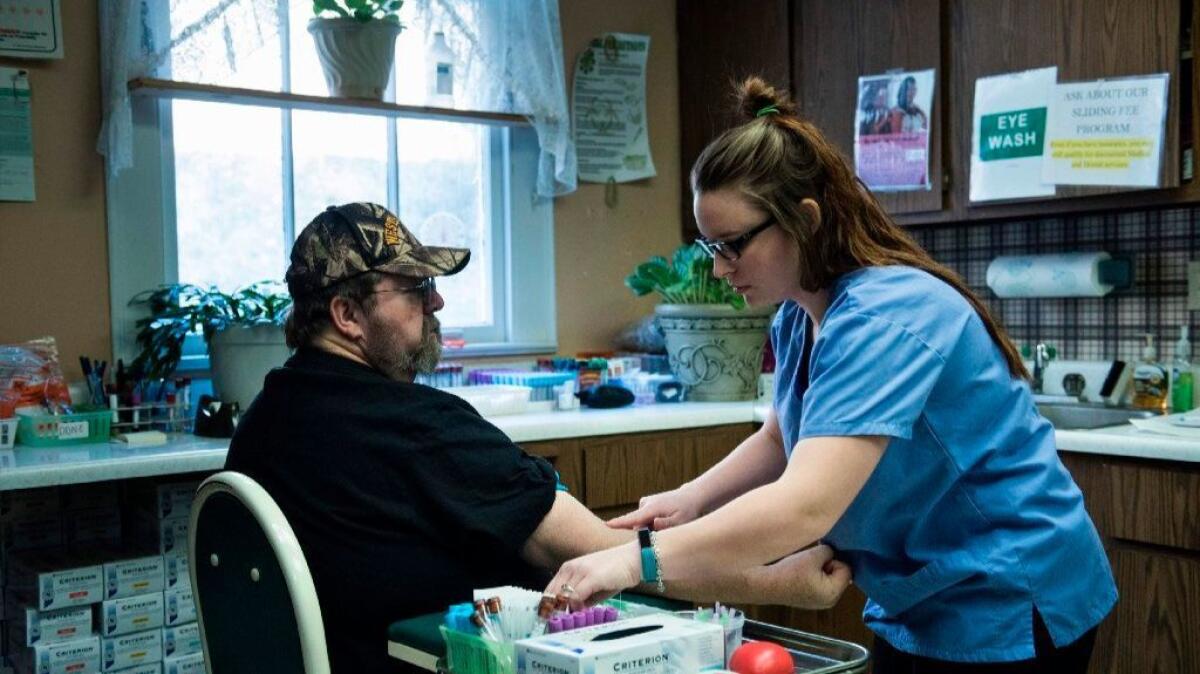Obamacare 101: 4 things you need to know about ‘essential health’ benefits

- Share via
Reporting from Washington — Among the most important — and little understood — new insurance rules put in place by the Affordable Care Act was a requirement that health plans cover a basic set of benefits.
The requirement was part of a package of new consumer protections in the healthcare law, including a prohibition on insurers denying coverage to people with preexisting medical conditions and bans on annual- or lifetime-limits on coverage, which were once common.
Conservative House Republicans have been demanding the so-called essential benefit requirements be scrapped.
Here’s a rundown of what this debate is about.
What are the essential health benefits?
The 10 benefits include:
— Ambulatory patient services, which include outpatient care such as doctor visits and surgeries that don’t require hospitalizations;
— Emergency services, including ambulance transportation;
— Hospital care;
— Maternity and newborn care;
— Mental health and substance abuse treatment;
— Prescription drugs;
— Rehabilitative services, including physical therapy and other care such as speech and occupational therapies;
— Lab services;
— Preventive care, some of which must currently be covered without any co-pay or other cost sharing;
— Pediatric care, including dental and vision care for children.
Why were essential health benefits included in the Affordable Care Act?
Before Obamacare was enacted, health plans routinely had holes in coverage that consumers often learned about only after they sought care.
For example, in 2011, one-third of health plans available to consumers who bought insurance on their own rather than through an employer, did not cover substance abuse treatment, according to data gathered by the U.S. Department of Health and Human Services.
Nearly one in five did not cover mental health. And nearly one in 10 plans did not include coverage for prescription drugs.
Why do conservative Republicans say they want them out?
Many Republicans say the essential benefits push up the cost of health insurance and force people to buy health plans with more coverage than they need.
They often point to maternity coverage, which they say men and older women do not need and therefore should not be forced to pay for.
The House Republican bill to roll back Obamacare already would remove these requirements benefits from Medicaid plans.
What impact would removing the requirements have?
Allowing for skimpier plans would likely be a boon for healthy people who don’t need much medical care. They would be able to get cheaper plans.
But many experts warn that the consequences of scrapping the benefit requirements could be serious.
For one, consumers could once again find themselves in health plans that do not cover things they did not anticipate they might one day need. .
For example, a health plan without prescription drug coverage might sound good when someone is healthy, but would be catastrophic if that same consumer were diagnosed with an unexpected cancer.
Secondly, making consumers pay only for the benefits they need might lower the cost of skimpier plans, but it would make plans that cover extra benefits like mental health or maternity care much more expensive. That would effectively penalize people who are sick or need medical care.
Some insurers might decide they simply don’t want to offer plans with the extra benefits because insurers would not want customers who incurred higher medical costs they might have to cover.
Finally, the elimination of essential health benefits threatens other popular consumer protections.
The bans on annual and lifetime caps on health coverage, for example, are linked to the mandated benefits. If there are no more mandated benefits, the caps become meaningless.
More to Read
Get the L.A. Times Politics newsletter
Deeply reported insights into legislation, politics and policy from Sacramento, Washington and beyond. In your inbox twice per week.
You may occasionally receive promotional content from the Los Angeles Times.











